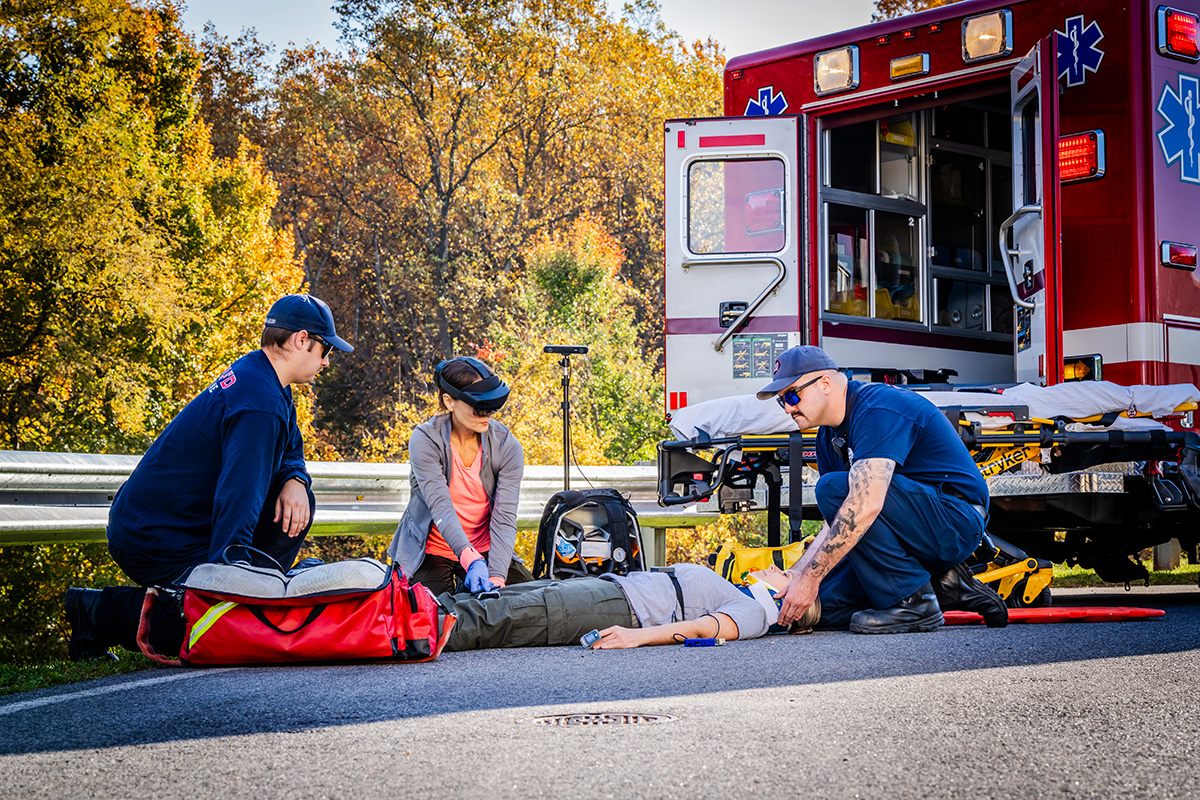
Health
Responding to growing national health challenges
Johns Hopkins APL is transforming health care by bringing significant new data analytics and systems engineering capability to the field of medicine that will enhance the nation’s ability to predict, prevent, and detect illness and injury.
Related Projects

Army Environmental Health Research
APL and the U.S. Army Center for Environmental Health Research are developing capabilities to detect, assess, and prevent effects from exposure to toxic materials—focusing especially on ways to prevent acute and chronic health effects through new biological technologies.
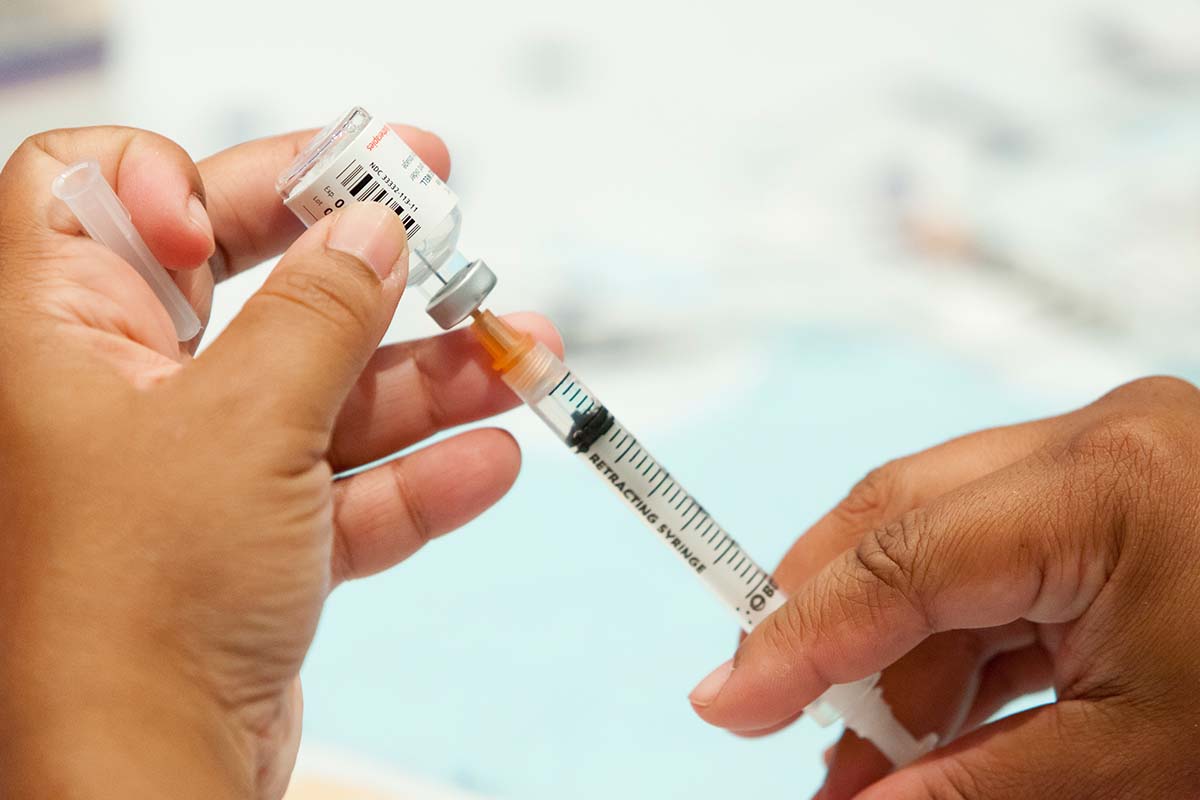
Durable and Portable Therapeutics Production
APL experts have made significant strides in developing methods for portable production of vaccines and other therapeutics, enabling production on demand in remote locations and during emergency outbreaks.
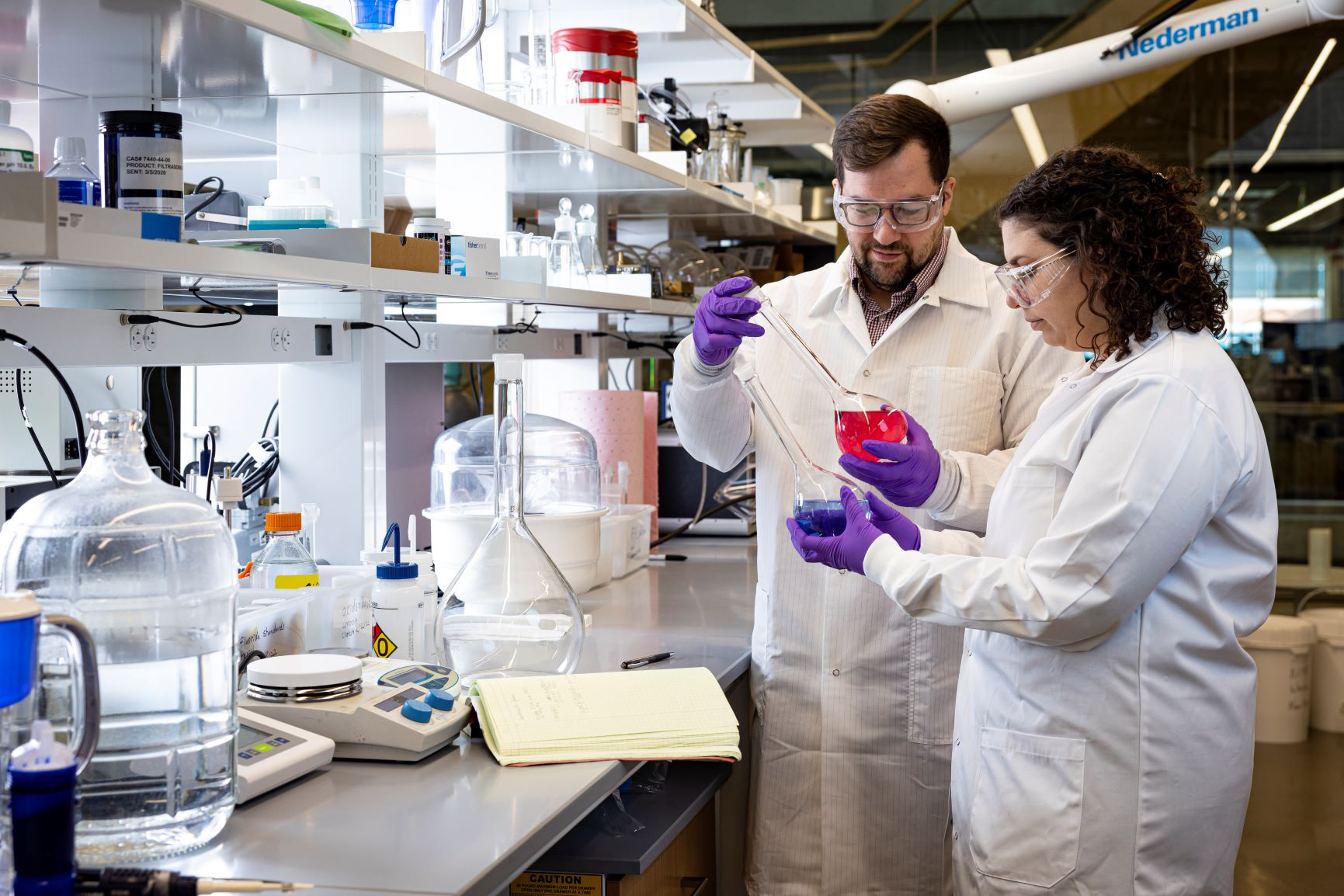
Eliminating Forever Chemicals
Multiple studies have linked PFAS exposure to harmful health effects in humans and animals, and without a natural way to break them down, the chemicals persist in soil and contaminate the environment — including water. APL scientists are developing several technologies to capture and destroy these “forever chemicals.”
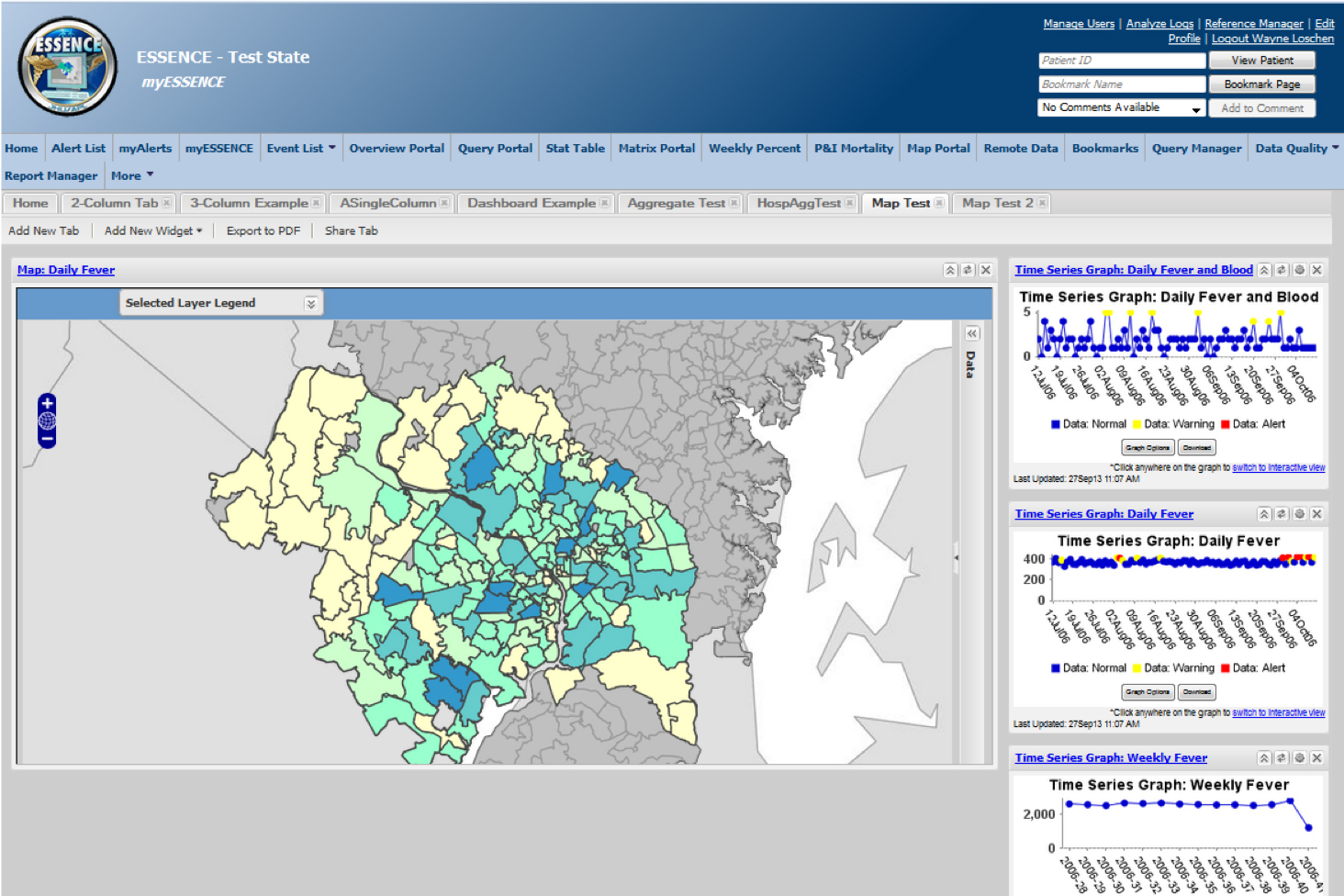
Health Surveillance
APL’s leadership in electronic disease surveillance is making a difference for both warfighter health protection and readiness and civilian populations.

Mapping the Brain
APL led testing and evaluation efforts for IARPA’s MICrONs project, launched to create state-of-the-art machine learning capabilities by discovering how brain circuits process information.
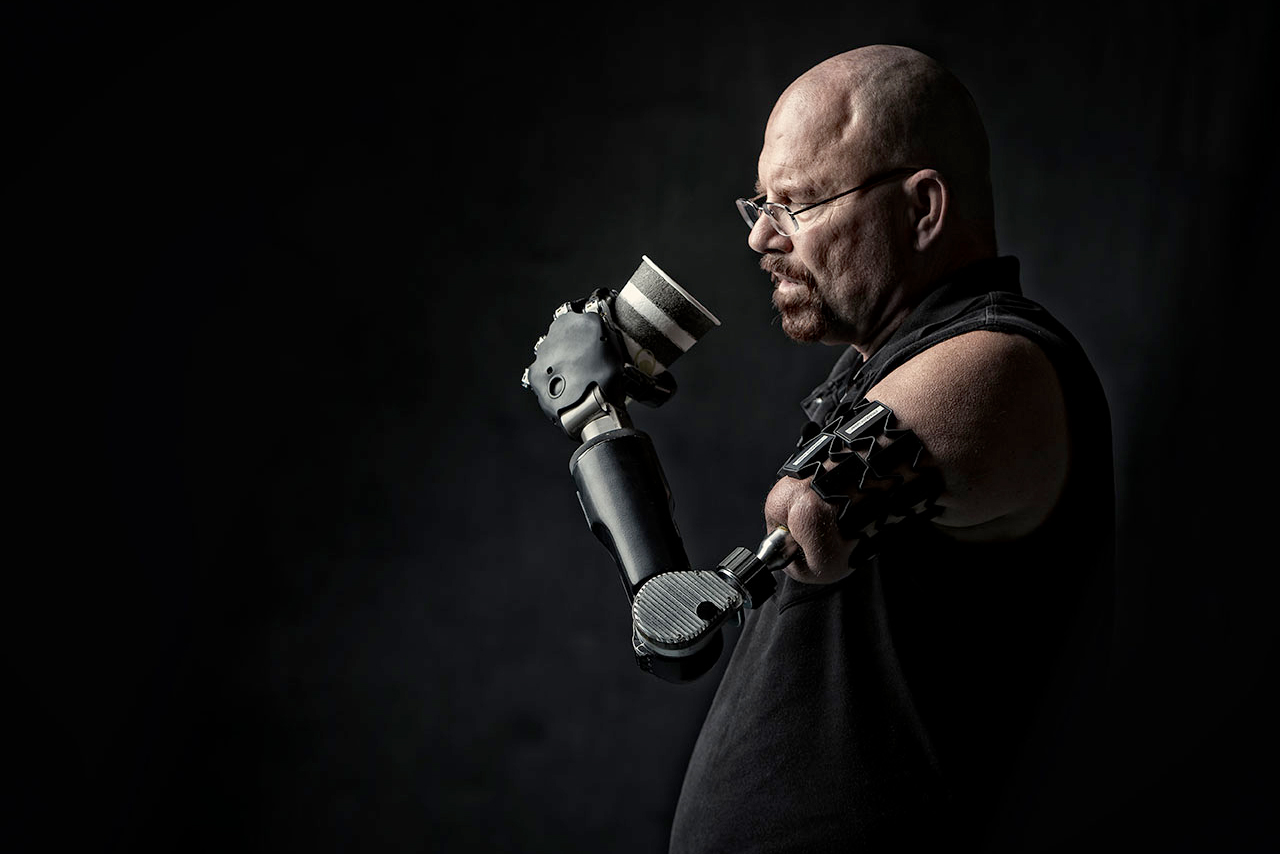
Revolutionizing Prosthetics
Revolutionizing Prosthetics was an ambitious multiyear program—funded by DARPA—to create a neurally controlled artificial limb that would restore near-natural motor and sensory capability to individuals with upper-extremity limb loss and spinal cord injury.

The Systems Approach to Saving Lives
APL’s thought leaders are stirring discussions on the importance of taking a systems approach to health care.
Related News

Press Release
Aug 14, 2025
Johns Hopkins APL Technology Fuels Startup Launched to Deliver Safer, More Effective Pain Management
A new startup, BIOPAC Medical Systems LP, has been launched to advance a novel neural blockade monitoring technology toward clinical use. The venture is a collaboration between APL, the Johns Hopkins School of Medicine, BLOCKsynop, Inc., and BIOPAC Systems, Inc., and will pursue regulatory approval and commercial deployment of a device that provides real-time, objective evaluation of regional anesthetic effectiveness.

News
Jul 3, 2025
Johns Hopkins APL Develops Innovative Platform for Traumatic Brain Injury Research
A team of researchers from APL and the Johns Hopkins Bloomberg School of Public Health is developing next-generation brain organoid platforms to better understand the effects of mild blast-induced traumatic brain injuries caused by repeated low-level blasts.
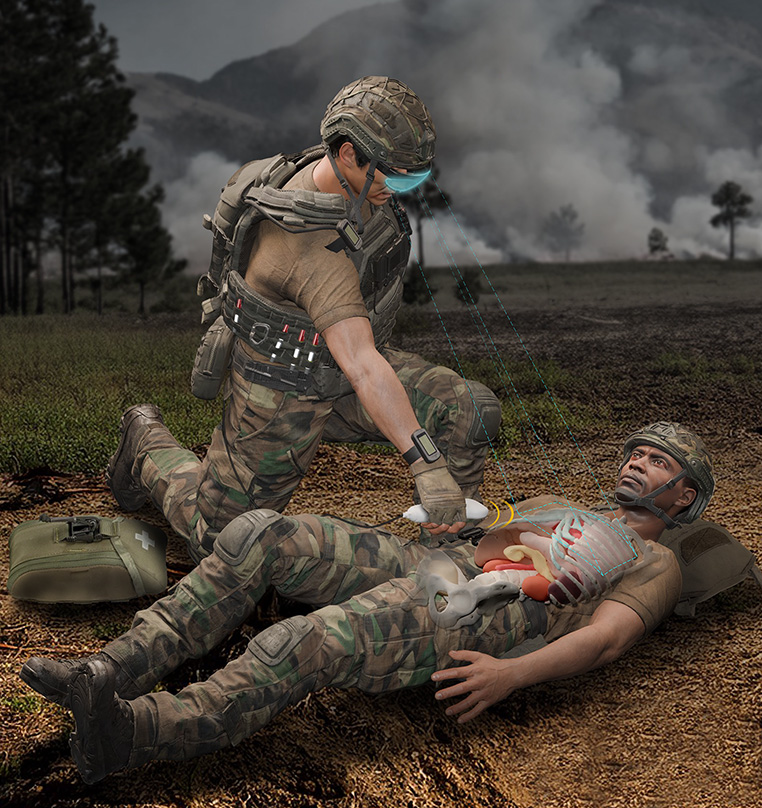
News
Feb 13, 2025
Revolutionizing Battlefield Medicine: Augmented Reality for Lifesaving Trauma Care
Johns Hopkins APL researchers are leveraging predictive anatomy visualization, artificial intelligence and real-time ultrasound to help medics provide faster and more accurate medical care in the field.
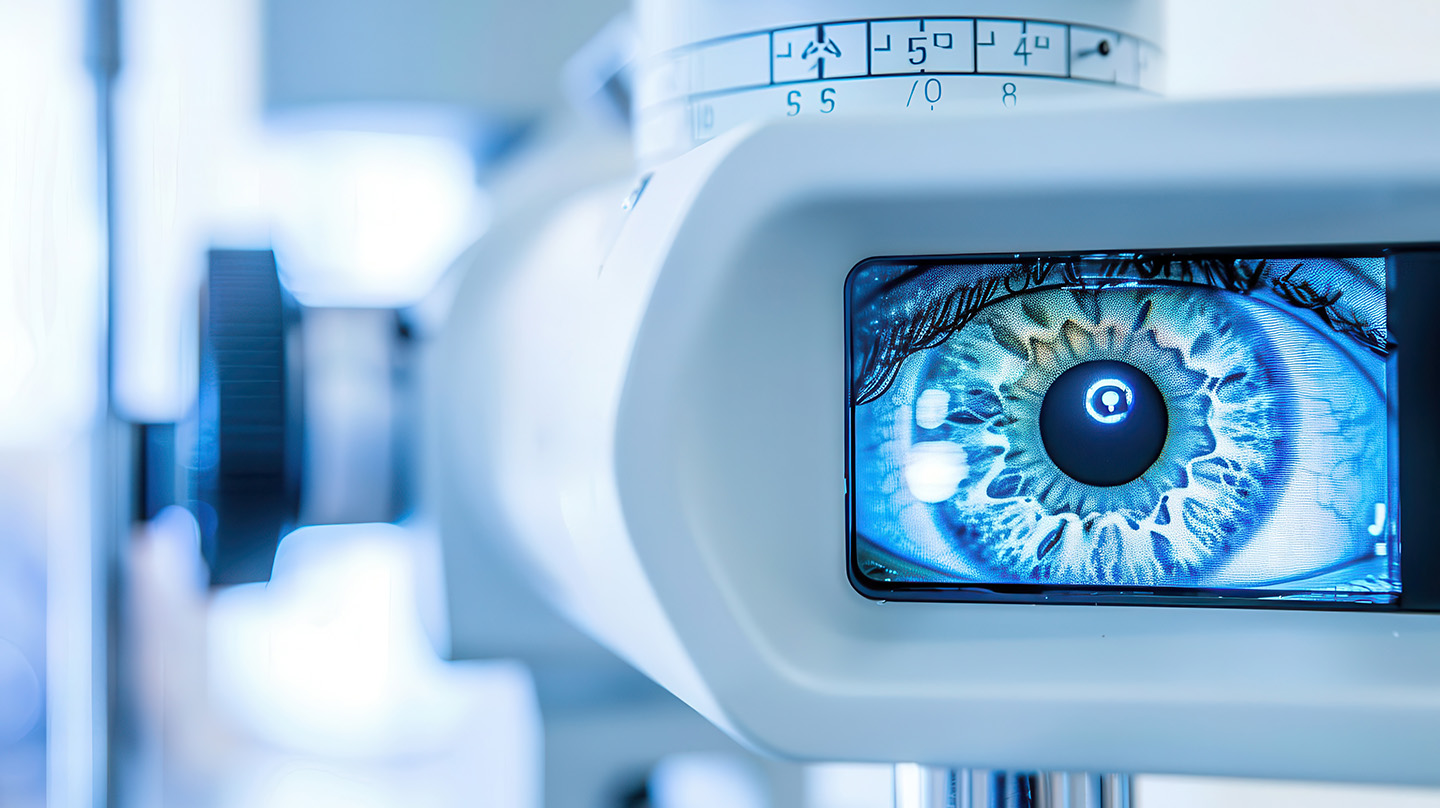
News
Jan 16, 2025
At-Home ‘Retinal Selfies’ May Provide a Window on Health
Researchers at Johns Hopkins APL and the Johns Hopkins Medicine Wilmer Eye Institute in Baltimore are designing a retinal imaging platform in the form of wearable eyeglasses that has the potential to expand access to retinal imaging and generate enough data to train machine learning models for accelerated research and improved diagnostic capabilities.

News
Jan 6, 2025
Johns Hopkins APL Reaches Highest Mark for Intellectual Property Disclosures
APL staff members filed a record 564 intellectual property disclosures in fiscal year 2024, reinforcing the Laboratory’s strategic value to sponsors and the nation and demonstrating an initial return on the Laboratory’s multimillion-dollar investments in transforming novel ideas into real and impactful solutions.